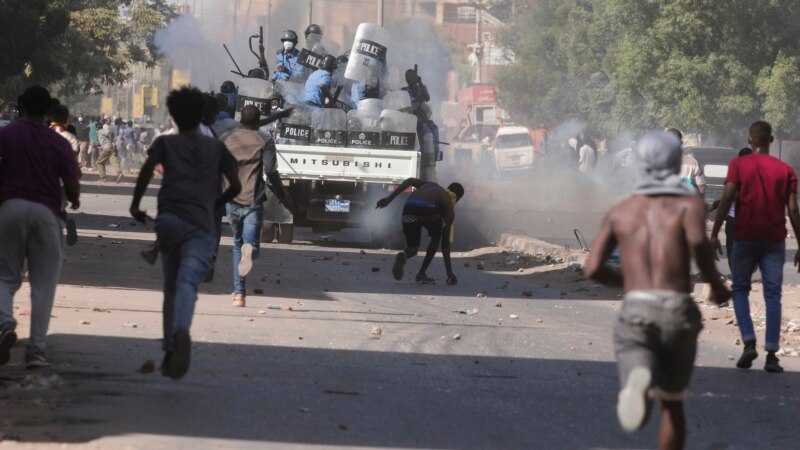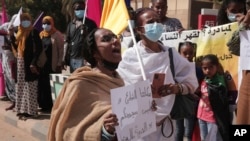This website uses cookies so that we can provide you with the best user experience possible. Cookie information is stored in your browser and performs functions such as recognising you when you return to our website and helping our team to understand which sections of the website you find most interesting and useful.

A report to the U.N. Human Rights Council says October’s military coup in Sudan has dealt a heavy blow to that country’s fledgling democracy, which might be difficult to reverse.
In her presentation of the report, U.N. High Commissioner for Human Rights Michelle Bachelet deplored the stark reversal of progress toward democratic rule that had been made since former president Omar al-Bashir was ousted in April, 2019.
She said October’s military coup once again has plunged Sudan into profound crisis. Since then, she said, a wide range of human rights violations have occurred with total impunity. She noted thousands of peaceful protesters have taken to the streets of Sudan to demand their rights.
“At the same time, the repeated use of excessive force by security forces persists," she said. "Live ammunition, and offensive weapons such as machine guns and shot guns, are being used directly against protesters, and tear gas canisters have been fired as weapons at their head and bodies, in clear breach of international law.”
The report documents numerous violations perpetrated by security forces, including attacks on hospitals, medical facilities, and health care workers. It describes a pattern of arbitrary arrests and detention targeting prominent protest organizers and demonstrators. It says even children who have participated in protests have been killed, injured, and arrested.
Bachelet expressed shock at allegations of dozens of rapes, gang rapes and other forms of sexual violence against women, girls, and men. She warned attacks against journalists and human rights defenders were increasing, posing a severe threat to rights of freedom of expression and peaceful assembly.
“The political crisis in Sudan has caused extremely worrying setbacks in human rights. It is urgent that the Sudanese authorities take credible steps towards reinstatement of a civilian administration with democracy and rule of law at its core, and to a path towards justice, equality, dignity, and peace for the Sudanese people,” she said.
Sudan’s acting minister of justice, Mohammed Saied Al-Hilo, said his government is committed to upholding the international and regional conventions on human rights ratified by Sudan — and that his country is committed to pursuing its transition to democracy.
He said the government had begun investigating allegations of human rights violations. He added all political prisoners have been released, except for those awaiting trial for criminal proceedings.



 Africana55 Radio
Africana55 Radio 


